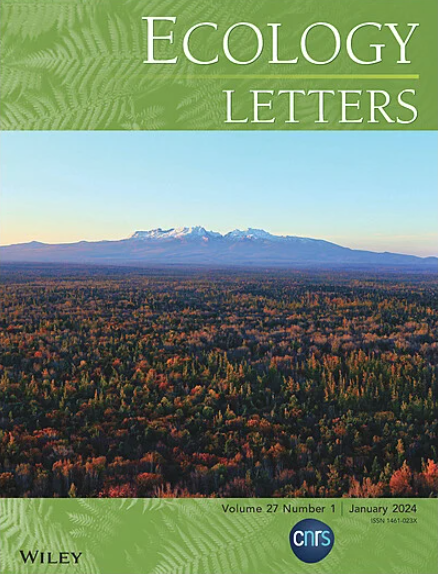集体科学为全球海洋保护提供信息。
IF 7.9
1区 环境科学与生态学
Q1 ECOLOGY
引用次数: 0
摘要
2023年6月,联合国通过了《公海条约》。两年后,签署国准备批准该条约,并制定一项法律文书,在我们最大的全球公域,即国家管辖范围以外的海洋区域实施海洋保护区。保护开放和深海是及时的:我们站在地球上最大的荒野上的工业革命的悬崖上。根据该条约决定在何处战略性地实施公海海洋保护区需要强有力的生物多样性信息,但可公开获取的数据很少,特别是在深海。现在有机会采取集体科学行动来支持这一集体政策行动。实现这一机遇需要快速的解决方案,包括:(1)支持和激励现有生物多样性数据的标准化公共共享;(2)拓宽参与式科学的范围,将海洋观测数据转化为生物多样性数据;(3)与我们全球社区的研究伙伴公平地实施新的数据收集。本文章由计算机程序翻译,如有差异,请以英文原文为准。
Collective Science to Inform Global Ocean Protections.
In June 2023, the United Nations adopted the High Seas Treaty. Two years later, signatories are poised to ratify this treaty and create a legal instrument to implement marine protected areas (MPAs) in our greatest global commons, ocean areas beyond national jurisdiction. Protection of the open and deep ocean is timely: we stand at the precipice of an industrial revolution in Earth's largest remaining wilderness. Deciding where to strategically implement high seas MPAs under this treaty requires robust biodiversity information, yet publicly accessible data is sparse, particularly at depth. There is now an opportunity for collective science action to support this collective policy action. Realising this opportunity necessitates swift solutions including (1) supporting and incentivising standardised public sharing of existing biodiversity data; (2) broadening the scope of participatory science to process ocean observations into biodiversity data; and (3) equitably implementing new data collection with research partners across our global community.
求助全文
通过发布文献求助,成功后即可免费获取论文全文。
去求助
来源期刊

Ecology Letters
环境科学-生态学
CiteScore
17.60
自引率
3.40%
发文量
201
审稿时长
1.8 months
期刊介绍:
Ecology Letters serves as a platform for the rapid publication of innovative research in ecology. It considers manuscripts across all taxa, biomes, and geographic regions, prioritizing papers that investigate clearly stated hypotheses. The journal publishes concise papers of high originality and general interest, contributing to new developments in ecology. Purely descriptive papers and those that only confirm or extend previous results are discouraged.
 求助内容:
求助内容: 应助结果提醒方式:
应助结果提醒方式:


